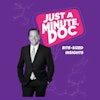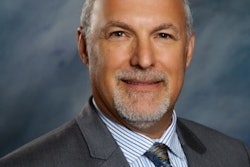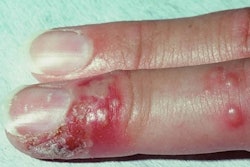
Dentists may not admit it, but some patient behaviors contribute to the burnout many healthcare professionals face. Being aware of these common irritants might help improve your relationship with your own dentist.
Last-minute cancellations
Everybody understands that cars occasionally won’t start or children get sick. But if you habitually cancel appointments at the last minute, your dentist will be annoyed.
 Dr. Teresa Yang.
Dr. Teresa Yang.
At a minimum, you should offer to pay for his time. It’s difficult to schedule a last-minute patient to take your place. If your dentist is self-employed, he loses money when he sits idle -- but his employees still expect to be paid. If he’s an employee himself, chances are his compensation is calculated based upon his productivity.
We’re all human, and sometimes emergencies make last-minute cancellations unavoidable, but your dentist may try harder for you if he knows you value his time as much as your own.
Broken appointments
There’s no excuse for breaking an appointment. An unacknowledged broken appointment sends the message that you have no regard for your dentist’s time. If it’s a legitimate mistake and you simply forgot, offer to pay for the dentist’s time.
Some dentists charge a nominal fee for broken appointments and last-minute cancellations. However, the amount doesn’t come close to covering their actual costs.
Chronic lateness
I had a patient once whom I adored, but he was always an hour or more late. To solve the problem, we began telling him his appointment was an hour earlier than the actual time. He knew it -- and we knew he knew it. Once, he even thanked us for helping him stay on time.
Over the years his tardiness improved, and he began arriving an hour early for his appointment. I didn’t like seeing him wait in the reception room, but it didn’t bother him one bit.
Being late forces your dentist to rush through your procedure, possibly compromising the result, or it makes him the bad guy when he tells you to reschedule. It may also make your appointment run into the next one, which is unfair to the next patient and to your dentist. It’s also unfair to you, because you deserve the best treatment your dentist can provide.
Treating your cell phone as a body part
Many medical offices prohibit the use of cell phones. In a dental setting, patients often use their phones to listen to music or a podcast while their teeth are being worked on.
But this proximity to your phone doesn’t mean you should answer it in the middle of a procedure. Not every call or message is an emergency; most can wait until after your appointment is over.
Ignoring treatment recommendations
You may not wish to fix that chip on your front tooth that your partner finds endearing. It’s your body and your healthcare decisions.
But if your dentist warns you that a serious problem will occur if you don’t follow through on his advice, please pay attention. If you suspect he’s trying to scare you into agreeing to treatment, there’s no trust in your relationship and maybe he’s not the right dentist for you. Or you may have a financial reason not to undergo treatment.
Discuss this issue with the dentist or the staff. Many offices offer either third-party financing like Care Credit or their own payment arrangements.
Sometimes patients wonder why a treatment recommendation is not mentioned at every checkup. Perhaps the dentist has forgotten, or maybe the problem wasn’t legitimate in the first place. More likely, after telling you multiple times, the dentist concludes you’re not interested in pursuing treatment and is reluctant to be seen as pressuring you.
Leaving the practice
It is always painful for a dentist when a long-standing patient leaves the practice. There may be an inciting incident that “breaks the camel’s back” and motivates the patient to change dentists.
Usually, the patient has had misgivings occur before this point but may have kept them to herself. An astute dentist will realize this and deal with it.
But sometimes, from the dentist’s perspective, it feels like a betrayal. He has treated the patient successfully for many years, maybe even bent over backward at times. And then, after such a long relationship, the patient is gone.
Once again, had the patient and dentist communicated more openly, he may have realized the brewing dissatisfaction and had an opportunity to correct the situation.
Excessive fee negotiations
In some cultures and countries, it’s customary to negotiate prices in all sorts of settings. In a U.S. dental office, it is rare, although some dentists do offer a small discount for paying in advance.
Strong odors
When your dentist is so close to you that she can see your pores, she will be able to smell --through her mask -- that you haven’t washed your hair in eight days. She may have sensitivity to your perfume or cologne.
And the two glasses of wine and salmon you had at lunch? Yes, even after mouthwash, your dentist will know.
Dr. Teresa Yang started two successful practices from scratch. In addition to writing about dental topics, she is the editor of WestViews, a publication of the Western Los Angeles Dental Society. Yang has also written general interest articles that have been published in various literary journals. She can be reached at [email protected].
The comments and observations expressed herein do not necessarily reflect the opinions of DrBicuspid.com, nor should they be construed as an endorsement or admonishment of any particular idea, vendor, or organization.
Excerpted from the book Nothing But the Tooth: An Insider’s Guide to Dental Health by Teresa Yang. Used by permission of the publisher Rowman & Littlefield. All rights reserved.



















